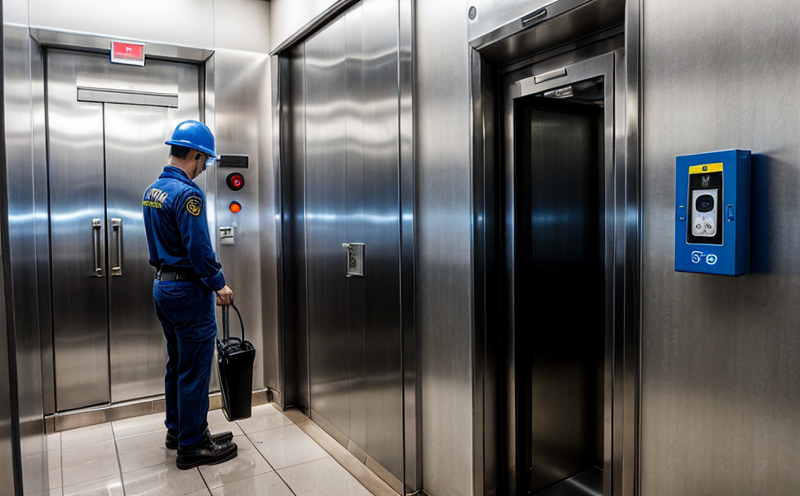Elevator alarm inspection
The elevator alarm inspection is a critical component of safety compliance and maintenance in the elevator industry. Elevator alarms are designed to alert personnel of potential hazards or malfunctions within an elevator system, ensuring the safety of passengers and operators. This service involves meticulous examination and testing of the alarm systems installed in elevators to ensure they meet regulatory standards and perform reliably under various conditions.
Alarms play a vital role in emergency situations such as power failures, over-travel, or other critical issues. Inadequate alarms can lead to serious accidents and injuries. Therefore, regular inspections are necessary to maintain the integrity of these systems. This service ensures that elevators meet industry standards for safety and reliability.
The inspection process involves several key steps. Initially, the alarm system is powered up and tested under normal operating conditions to ensure it functions correctly. Next, the system is subjected to simulated emergency scenarios such as power loss or over-travel to evaluate its response. This testing helps identify any potential issues that may need addressing.
Following the inspection, a detailed report is generated, outlining all findings and recommendations for necessary maintenance or repairs. The report serves not only as documentation but also as a tool for continuous improvement in elevator safety protocols.
The importance of this service cannot be overstated. Elevator alarm systems are subject to stringent regulatory requirements such as ISO 21740, which mandates comprehensive testing and certification processes. Compliance with these standards ensures that elevators remain safe and operational at all times.
In addition to regulatory compliance, elevator alarm inspections contribute significantly to the overall safety culture within facilities. By identifying potential hazards early on, this service helps prevent accidents and injuries, thereby enhancing workplace safety.
Scope and Methodology
| Aspect | Description |
|---|---|
| System Power-Up Testing | The alarm system is powered up and tested under normal operating conditions to ensure it functions correctly. |
| Simulated Emergency Scenarios | The system is subjected to simulated emergency scenarios such as power loss or over-travel to evaluate its response. |
| Detailed Reporting | A detailed report is generated, outlining all findings and recommendations for necessary maintenance or repairs. |
Customer Impact and Satisfaction
- Enhanced Safety: Regular inspections ensure that elevator alarm systems are in optimal working condition, reducing the risk of accidents.
- Compliance Assurance: Meeting regulatory requirements helps facilities avoid legal penalties and maintain a good reputation.
- Operational Efficiency: Reliable alarms contribute to smooth operation by preventing disruptions due to malfunctions.
- Peace of Mind: Knowing that elevator alarm systems are functioning correctly provides reassurance for facility operators and occupants alike.
Competitive Advantage and Market Impact
Offering comprehensive elevator alarm inspection services positions a laboratory as a leader in safety and compliance within the industry. This service not only ensures regulatory adherence but also enhances customer confidence, leading to improved market standing. By consistently providing high-quality inspections, laboratories can differentiate themselves from competitors, thereby attracting more clients.
Additionally, this service fosters long-term relationships with customers by demonstrating a commitment to safety and quality. Such relationships are crucial in maintaining a steady stream of business and promoting positive word-of-mouth referrals.





